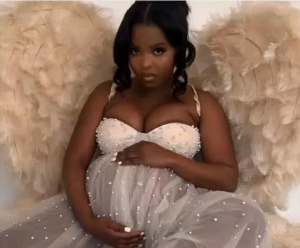Nigerian Muslims who fled to Cameroon to escape Boko Haram say that they are being shunned as suspected sympathizers of the insurgent group. And the suspicions are not only amongst Cameroonians but Nigerian Christians who do not trust them and refuse to live with them in refugee camps.
French-born Muslim Rashid Abou Houdeyfa preaches peace and tolerance at the central mosque in Cameroon's capital, Yaounde. Nigerian refugee Abdoulaye Diallo, who says he fled his hometown of Dikwa to get away from Boko Haram, has been persecuted in Cameroon by people who think he is a sympathizer of the Nigerian terrorist group.
He says many people mistakenly think that Islam and Boko Haram are synonymous and do not trust Muslims. He stressed that Boko Haram is not Islam.
But that message is a hard sell in communities victimized by Boko Haram violence, kidnappings and raids that have spilled into Cameroon in the past few years, as the insurgents fight to set up a caliphate in northern Nigeria.
History of violence
Oumarou Ngomna, the traditional ruler of Kemzogo village on Cameroon's northern border with Nigeria, says he does not accept strangers who are Muslims because they have had a history of violence in Nigeria.
He says he had to ask them to leave his village because he was informed that some Muslims in Nigeria burn mosques, churches and villages and even slaughter people. He says he is very skeptical of any Muslim visitors.
Sociologist Manga Pegui says he feels threatened when he sees Nigerian Muslims.
"I feel threatened because I see what is happening in neighboring Nigeria. I see the carnage that Boko Haram has been inflicting on innocent people in Nigeria and in Cameroon and I see what Islamist extremists are doing in other countries," he said.
But it is not just Nigerian Muslims who are shunned. Nigerian Christians also face stigma and suspicion and Elias Yega is one of such. "They mix us together, both Muslims and Christians. Sometimes we have problems because when we identify the militants we call them to arrest them and take them to security here," said Yega.
Tolerance
The growing stigmatization has prompted religious groups to step up their messages of tolerance. Christian Manuba is with the Catholic Church’s Ecumenical Service for Peace. He says while people must be vigilant of security threats, they must also have compassion for the Nigerians who are in desperate circumstances.
"It is very, very deplorable. First of all the refugees have lost all of their livelihoods. There is no other means of survival. They now depend on the goodwill of the host communities, perhaps of the host government," said Manuba.
Chieck Oumarou Ibrahim, a Muslim spokesperson in Yaoundé, agrees. He tells VOA there is Christian-Muslim cooperation here to help overcome the stigma Nigerian Muslims face.
"We have talked about something which is essential and we can do it. It is inter-religious dialogue. We are joining ourselves with Christians and praying together. We are doing our best in educating our children, our population in mosques and in churches to live in peace," said Ibrahim. But the problem can be complex in the face of tactics used by the insurgents. In February, Cameroon's military arrested groups of Boko Haram fighters who were disguised as refugees.
Actualités of Wednesday, 11 March 2015
Source: voanews.com













